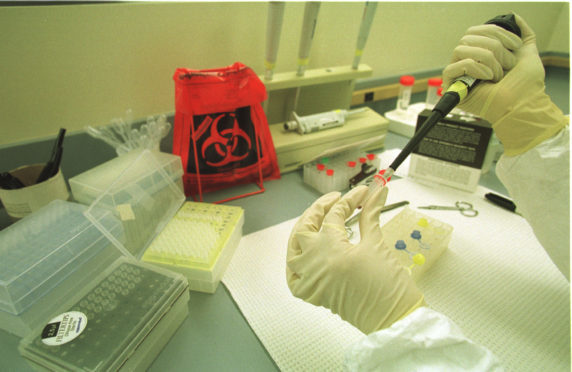A major breakthrough has been made by researchers at the University of St Andrews towards finding new treatments for the most common genetic cause of infant death.
Spinal Muscular Atrophy (SMA), which affects one in 6000 babies in the UK, is a form of motor neurone disease which results in progressive paralysis.
The severest type of SMA usually results in a life expectancy of less than two years, but there are also later-onset types.
SMA is caused by a reduction in the amount of a protein called SMN (survival motor neurones) which is needed in all types of cell, so it is not clear why motor neurones are particularly sensitive to damage.
However, Dr Judith Sleeman and Dr Catherine Botting of the School of Biology at the University of St Andrews, along with Professor Tom Gillingwater and Dr Ewout Groen at the University of Edinburgh, have discovered Neurochondrin, an essential protein found in nerve cells, interacts with the protein SMN – and that appears to suggest Neurochondrin is hugely important in the cells most severely affected in SMA.
Dr Sleeman, lecturer in Developmental Cell Biology in the university’s school of biology, said: “This is a very exciting time for SMA research, with the first treatment recently released and promising results from gene therapy trials.
“However, it is unlikely that the treatments currently available or in development will provide a complete cure for SMA or be suitable for all patients.
“It is imperative that we understand how cells are damaged in SMA patients to continue to improve the lives of people affected by this devastating condition.”
The researchers plan to examine whether the Neurochondrin protein is involved in the damage to motor neurones seen in SMA patients, and investigate the potential for new therapies for SMA based on this interaction.









